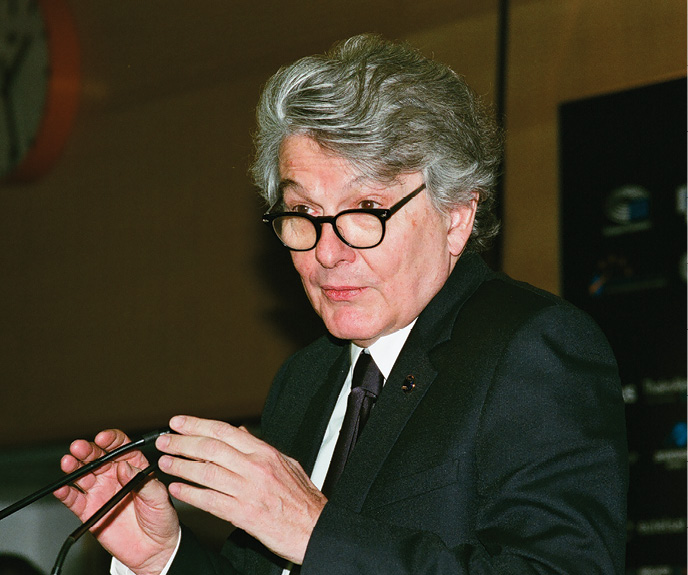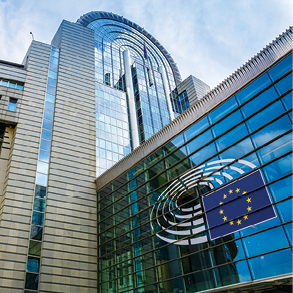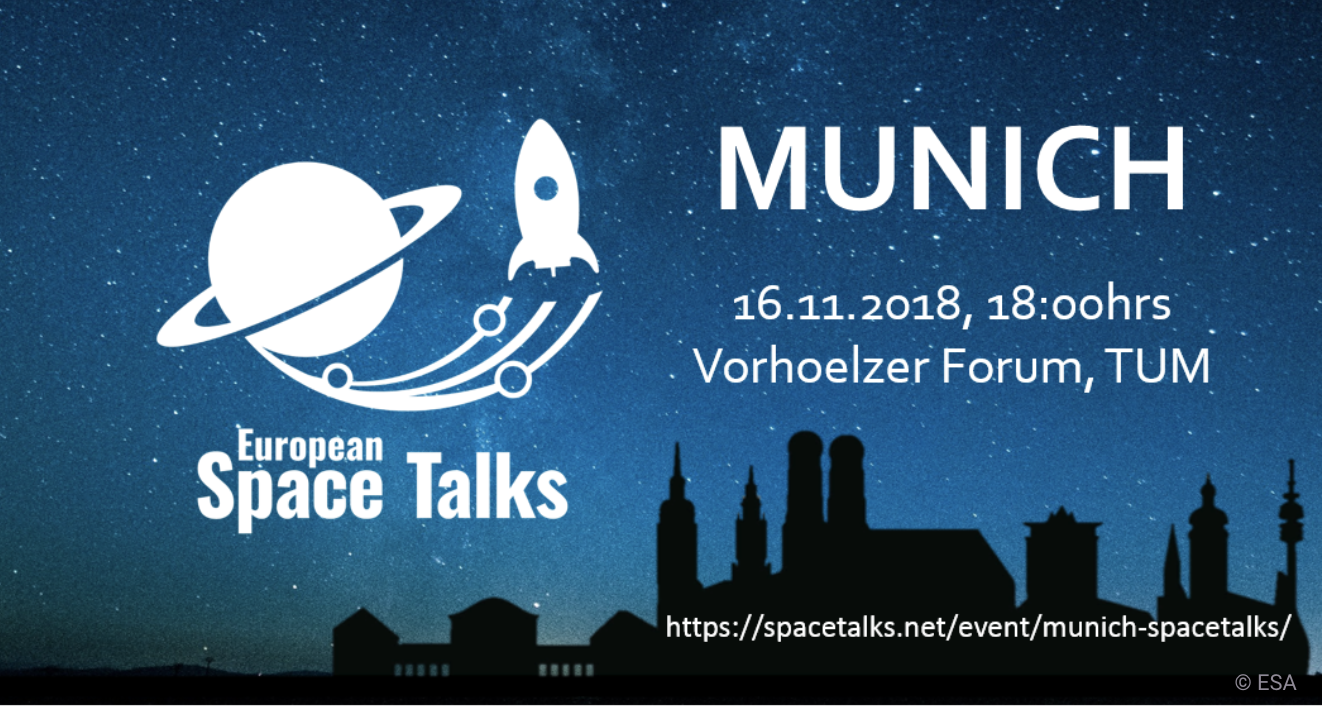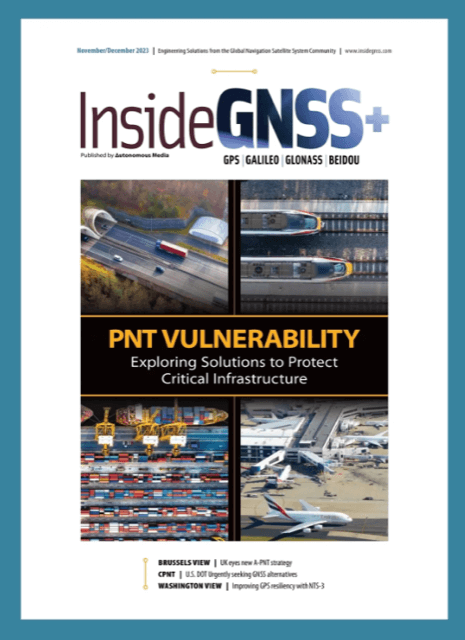Speakers at the 14th European Space Conference in Brussels discussed the need to defend EU assets against unfriendly attacks. Recent events in Eastern Europe would seem to lend force to such concerns, as the European Union makes headway toward the intersection of civil infrastructure and security and defense.
At the 14th European Space Conference earlier this year, EU Internal Market Commissioner Thierry Breton said, “Space is a contested domain. We should develop new infrastructures as dual-use by design, integrating the defense needs from the outset.”
Among Europe’s key space assets are the Galileo satellite-based navigation system and the EGNOS augmentation system, both of which are due for upgrades in the coming years. Galileo second generation (G2G) will feature improvements in the form of increased, designed-in robustness for both civilian and military users.
“Following my decision to accelerate the deployment of the second generation,” Breton said, “we have now prepared all the necessary contractual conditions and we are expecting to receive the first second-generation satellite in 2024, for a launch in 2024.”
Meanwhile, the next generation of EGNOS will provide dual-frequency, multi-constellation (DFMC) services, augmenting GPS L1/L5 and Galileo E1/E5.
It doesn’t require a lot of imagination to appreciate the military value of secure, highly accurate and robust space-based positioning and navigation. A European Commission source told Inside GNSS: “Secured navigation and timing is essential for most military operations, as illustrated by the current widespread use of GPS PPS [Precise Positioning Service].”
PPS is the highly accurate military positioning, navigation and timing service reserved for authorized users, broadcast on GPS L1 and L2 frequencies. Both frequencies contain a precision (P/Y) code ranging signal with an encrypted navigation data message.
“Similar applications can be envisaged based on the Galileo Public Regulated Service [PRS],” our source said. “The Galileo PRS offers a navigation service restricted to government-authorized users for sensitive applications. These are applications requiring a high level of service continuity, using strong, encrypted signals notably in the area of security and defense. The PRS, like GPS PPS, is designed to offer unlimited and uninterrupted service worldwide. Significantly higher radio frequency power levels are also an important element in this context.”

Changing Times
Galileo was conceived and long presented as a purely civil system, for civilian use and under civilian control.
“This does not mean it cannot address the needs of all kinds of user communities,” our Commission source said. “There are already very established processes to collect the needs of governmental users in Member States and the specification, design and deployment options selected for Galileo are inherently consistent with the provision of service of a dual-use nature. This covers the service and performance specifications, the security engineering put in place throughout the design, the location of critical infrastructure, the redundancy of the design, etc.” Galileo’s elder rival, GPS, for its part, was proudly designed and developed and continues to be operated as a military infrastructure, which just happens to have been made available to civilian users.
So, GPS, Galileo and similar space systems represent a powerful yet vulnerable infrastructure, on which, increasingly, today’s worldwide economy relies. With the EU having publicly recognized the value of Galileo as a defense asset and knowing how crucial it is to keeping the wheels of business turning, the need to defend it, with urgency, is also clear.
The Russian Question
“All bilateral contacts with Russia in respect of space have been frozen since the annexation of the Crimea in 2014,” our European Commission source said. “Since then, there has been no dialogue with Russia and the limited contacts with representatives from the Russian authorities have been made in the course of meetings at the international level.”
In space, real physical action took the place of civil dialogue quite emphatically last November, when the Russian Federation shot down an orbiting satellite with a surface-to-space missile. The vulnerability of the world’s space-based assets was thus made plain. A statement from the Russian Ministry of Defense (MoD) at the time said it had targeted one of its own inactive satellites as a demonstration. This was in response to the United States’ new space strategy, with one of the goals being, Russia’s MoD said, to create a comprehensive military advantage in space.
In April, the U.S. became the first country to announce a ban on missile tests against space satellites. U.S. Vice President Kamala Harris, who chairs the National Space Council, said tests like the one carried out by Russia were reckless, although it should be pointed out that the U.S., along with China and India, have all carried out similar tests. The American administration first showed interest in such a ban last December.
The EU had already expressed concern over the threat posed by space debris, the increasing multitude of derelict and potentially dangerous space junk floating around in orbit. It’s clear that, from now on, not everything endangering space assets is necessarily up there by mistake. Europe, along with the rest of the world, has to be prepared to face a deliberate attack on space infrastructure, including critical communication, earth observation and navigation satellites.
“The Union, of course, already has surveillance and tracking systems,” Breton said at the Space Conference in Brussels. “We monitor more than 240 satellites in real time, including Galileo and Copernicus [Copernicus is the EU’s earth observation system], in order to protect them against risks and collisions, but faced with the challenges of the multiplication of threats we must go further and define a holistic system approach.”
“The security threats on Galileo are similar to those for most critical infrastructure,” our Commission source said. “Cyber threats are obviously high on the list. There are also emerging threats, with the ever-growing pressure and threat environment on space assets as recently illustrated in the news. The threat environment being volatile by definition, the European space program adapts regularly its approach to mitigate them to an acceptable level.”
In a response to Russia’s more recent actions on the ground, the European Agency for the Space Program (EUSPA) has launched a platform to put space at the service of the Ukrainian people.
Our Commission source said, “We are trying to use space assets to help Ukrainians. This platform aims to match innovators, startups and companies with NGOs and other helpers. It gathers applications and solutions that leverage freely accessible data from Galileo and Copernicus, to enhance humanitarian support for the Ukrainian people and invites the innovation community to propose additional ones. The applications and solutions published on this platform will cover a wide range of uses, from supporting NGOs delivering medical goods via drones, to practical solutions to support the integration in EU countries of people fleeing the war.”
A Diversity of Partners
European space isn’t only about the public sector. Representing industry, Philippe Clar, Ariane Group executive vice president, defence programmes, said, “Knowing what’s going on above is key to all military operations. That is why we have deployed a network of sensors called GEOtracker.”
The system, comprising optical sensors, a control center and distributed around the globe, provides extremely precise positioning and orbit-tracking data for objects in medium Earth orbit (MEO) and geostationary Earth orbit (GEO). “We have been providing this service to the French Space Command,” Clar said. “We have added laser technologies and we will reach up to 30 telescopes by 2025. What is interesting to notice is that 10% of the objects we track are not in the public domain. That is, they are not known.”
Also representing industry, Antoine Noguier, executive vice president, strategy, Airbus Defense and Space, talked about the capacities needed to bolster European security and defense: “We are entering into a dependence on space, and that dependence creates vulnerability. The threat element is increasing, with the chief threat coming from the Earth. The Russian satellite missile shot was actually striking in this regard. Kinetic threats are important, because space assets are not protected. But we also see other developing threats, those being non-kinetic—jamming, cyber—all that is coming, very hard to detect, and detection is the first element you need to consider. We need connectivity, high-enough broadband to establish communications superiority, which is what you need today on the battlefield.”
Commissioner Breton also highlighted the importance of secure connectivity: “We want to avoid potential strategic dependencies [on American and other non-EU assets] to establish ultra-secure, space-based connectivity infrastructure, using quantum encryption, a government and commercial communication service, integrating from the start the military usage. The secure connectivity infrastructure could be equipped with a payload on the LEO [low Earth orbit] satellites, allowing to monitor space from space. We could better organize joint situational awareness, with the participation of all actors.”
Nougier continued: “Our position, navigation and timing is already in place, but that needs to be further developed in order to achieve resilience by combining the capabilities of different dedicated space assets, including using commercial assets. The duality of space is important, and that’s also what we do at Airbus, using all capabilities between orbits LEO, GEO to secure data. We need to be able to detect who is doing what in orbit. The Americans have launched two satellites dedicated for this purpose, targeting a total of six. This means we need to have dedicated assets like this to achieve our ambition.”
And again, Breton: “Our aim could be in the long run to establish, let’s say, a true European Space Command. For now, we are looking forward to this year when we go from words to concrete implementation, when we will finally, concretely and fully, integrate the defense and strategic dimension of space.”
EUSPA Remains Central Player
Breton described a new governance arrangement for secure space connectivity based on the Galileo governance model. Indeed, there is already a proposed EU regulation to establish such a framework for space connectivity infrastructure. The regulation would extend the Galileo security governance model to other space components. This entails the operation of a common infrastructure under civilian control, meeting defense and security needs via a secured service for government users. Once adopted, our Commission source said, the new regulation will enable enhanced EU connectivity with military-level resilience, answering defense requirements from the outset.
Galileo operations and service provision, as well as that of the EU’s earth observation system, Copernicus, and the secure governmental communications service, GOVSATCOM, are overseen by EUSPA. The Agency’s Executive Director Rodrigo da Costa, said, “EUSPA ensures the safety and security of the EU space program and all its components, including assets in space and on the ground, and we provide services for governmental users,” such as the PRS and GOVSATCOM. “These are of fundamental importance for security stakeholders in the EU member states.”
2022 will see significant progress toward the next PRS milestones, he said, “and we will be ramping up our activities to prepare the Galileo high-accuracy services for applications that require stringent levels of accuracy. Likewise, the navigation message authentication is currently undergoing a public test observation phase and this provides an innovative and unique feature to further strengthen service robustness and increasing the capability of detecting spoofing attacks.”
Once again, setting context and tone, Commissioner Breton said, “Space is a strategic place, where big powers are now competing, and we cannot be naive anymore. Galileo is the best satellite navigation system in the world. However, our competitors are moving fast. Europe must defend its interest and freedom to operate in space.”






